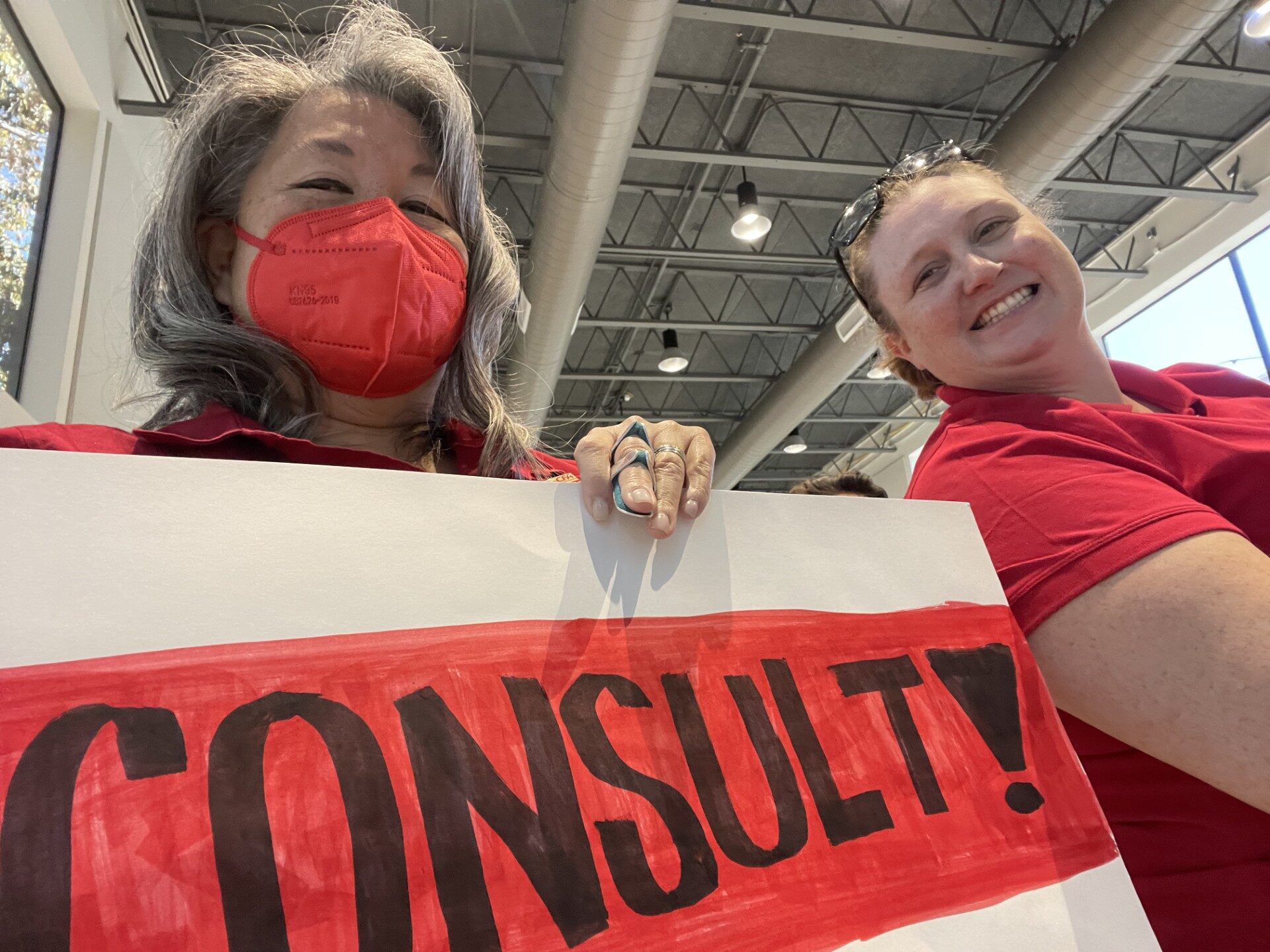CSU Management Remains Silent on San Luis Obispo and Maritime Restructuring Details
The lack of shared governance and transparency surrounding the Cal Poly San Luis Obispo and CSU Maritime integration has prompted CFA members to raise questions and concerns over the implementation of this plan.
In an effort to address critiques of the implementation, Cal Poly San Luis Obispo President Jeffrey Armstrong held a town hall on October 17 to discuss the proposed integration with CSU Maritime, the shift to year-round operations, and the transition from a quarter system to a semester system.
At the town hall, CFA San Luis Obispo Executive Board members donned red shirts and held up signs reading “Transparency,” “Accountability,” and “Consultation” whenever Armstrong violated these three principles.
When asked if faculty, including part-time lecturers, would be required to teach during the summer to maintain their teaching entitlements, Armstrong declined to answer. He also dismissed faculty concerns about whether classrooms would be climate-controlled, stating that others around the world have managed to work in summer conditions and that we should be able to do the same.

Ultimately, Armstrong did not offer substantial answers to any of the questions he was asked about restructuring. He informed faculty that they would be consulted on these issues “after decisions had already been made.” He then left without providing any information regarding the future of faculty and student livelihood.
Not long after, the Instructional Department Heads and Chairs Committee (IDHC) held a meeting to gather feedback on the proposed year-round operations calendar. Nearly all forty department chairs in attendance expressed strong concern about the calendar itself.
Regarding the meeting, Dr. Silvia Marijuan, CFA San Luis Obispo Faculty Rights Chair, remarked, “Among these concerns are the likely negative impacts of the proposed year-round operations calendar on student learning experiences, program quality, professional development, and workload.”
“The overall sentiment is that the proposed calendar is being imposed on faculty without meaningful consultation. It seems that the common practice in the past has been for campus constituents to receive different versions of a given academic calendar for consideration. However, this time, constituents received only one option for the proposed calendar, with no indication that the administration is taking faculty feedback into account,” said Marijuan, the World Languages and Cultures Department Chair at Cal Poly San Luis Obispo.
CFA members have been seeking clarity on these potential changes for months, actively voicing concerns during CSU Board of Trustees meetings. We also submitted two information requests regarding alternative considerations to integration, expected course cuts, possible department and/or program eliminations, and operational, logistical, and regulatory details included in the estimated $35 million transition costs. A third information request is on the way. Like the recent town hall, the president and CSU management rejected all of our efforts to produce meaningful answers.
These proposals are complex and carry serious implications for all faculty, staff, and students within the CSU system. CFA members are making their voices heard on both campuses by raising awareness of the restructuring and consistently challenging the lack of shared governance from CSU management.
A second town hall at San Luis Obispo is being held online via Zoom on October 31 from 11:10am to noon. You can click here to join the meeting.
The CFA Maritime chapter is currently working on getting their president to hold a town hall as well.
Join California Faculty Association
Join thousands of instructional faculty, librarians, counselors, and coaches to protect academic freedom, faculty rights, safe workplaces, higher education, student learning, and fight for racial and social justice.